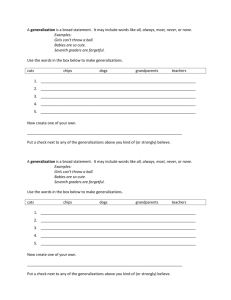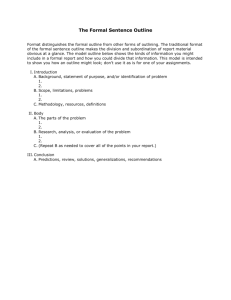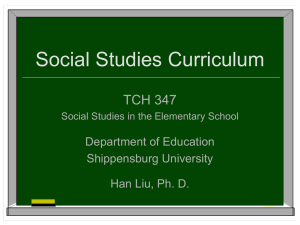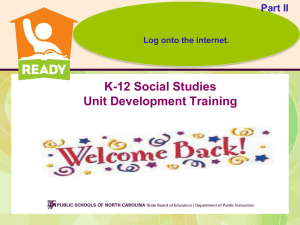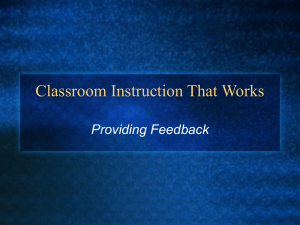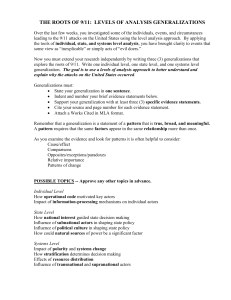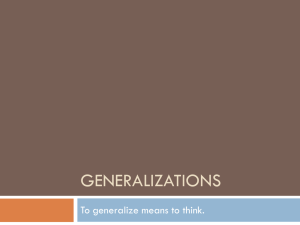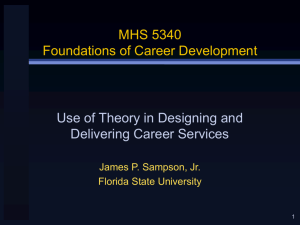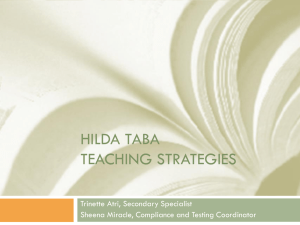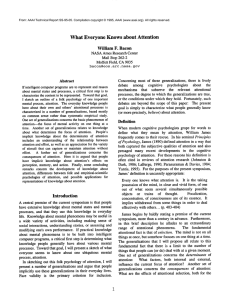Facts, Concepts and Generalizations - CI443
advertisement
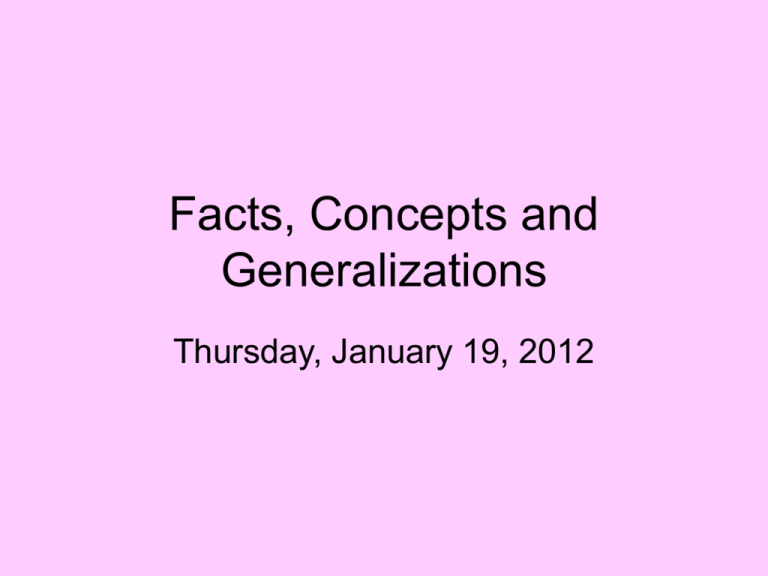
Facts, Concepts and Generalizations Thursday, January 19, 2012 Learning Objectives for today’s Lesson: Students (You! ) will be able to: • Differentiate between a fact, concept and generalization. • Explain the importance of generalizations. • Identify strategies for teaching concepts and generalizations. This relates to our Course Objective of: • Explain and implement the role of inquiry, concepts and generalizations in Social Studies. Important Idea to remember… • Students gain factual knowledge, build concepts and form generalizations all the time (at home, on the playground, in front of the tv) • In class, we want to create experiences for students to gain factual knowledge, build concepts and form generalizations that help them understand Social Studies content (life!) better. Facts • Do not need to be “academic” sounding. • Do not need to be detailed. • Examples of Facts: – My family has four people in it. – Florida has a warmer winter than Canada. Concepts • • • • Ideas Abstract Construct Meaning Examples: – – – – – Family Climate Nation Island War Activity • Pick an age group and discuss what “factual” knowledge you would expect your students to have based on their prior experience. • Your group will have one of the following concepts: – – – – – – – – – Family Community Money Trade War Internet Religion Government Law Generalization • Relationships among 2 or more concepts. • These can be big understandings/ideas for a unit. • Examples: – Families vary in structure, number and experience. – Climate varies by location. – War has negative effects for the environment and citizens of a region. – Creating, using and understanding maps helps us understand our world and its people. Generalization Concepts Facts Generalizations: Customers need to make choices at stores based on the amount of money they have and the cost of items. Concepts: Cost, Product, Sales, Store, Money Facts: Cars 2 Movie cost $15.00. Milk cost 3.90. Baby Formula cost $24.00. Mom has 30.00. Mom says she doesn’t have enough money for the movie I want. Activity • • • • • • • • Playground Restaurant Riding in Car Playing Baseball Hallway at School Going to the Airport Going to the Library Watching a professional hockey game. Generalizations: Creating, understanding and using maps can help us learn about the world and its people. Concepts: Map, Location, Scale, Legend/Key, Data, Index, Grid, Source, Title, Orientation/Direction Facts: 39*North and 92*W are the latitude and longitude coordinates of my hometown. Grids can be used to find a place on a map and while travellling. Geographic Information systems store data. Maps are more attractive to me when they are in color. Legends tell what the symbols mean on a map. Activity • Create a Facts, Concepts, Generalizations triangle to include some of your ideas for your thematic unit. • Consider and list on the side: – Possible Misconceptions – Possible Inaccurate Generalization Experiences in the classroom. • Like Inquiry, creating experiences where students gain factual knowledge, construct concepts and form generalizations can take many forms. – Inquiry based activities – Guided Discovery (what we’ll be doing today) – Field Trips – Books – Summative Projects Africa Posters Activity • “Country Projects” • “Concept Maps” • Developed Countries • Examples and Non Examples • Gather Data • Concept Map Matching Quiz • Based on readings and lecture.
